Before starting any building project in Lucknow, knowing what lies beneath your feet is crucial. Soil testing tells us if the ground can safely support your home, shop, or office building.
We will explain the complete process of soil testing in simple terms, especially for construction projects in Lucknow.
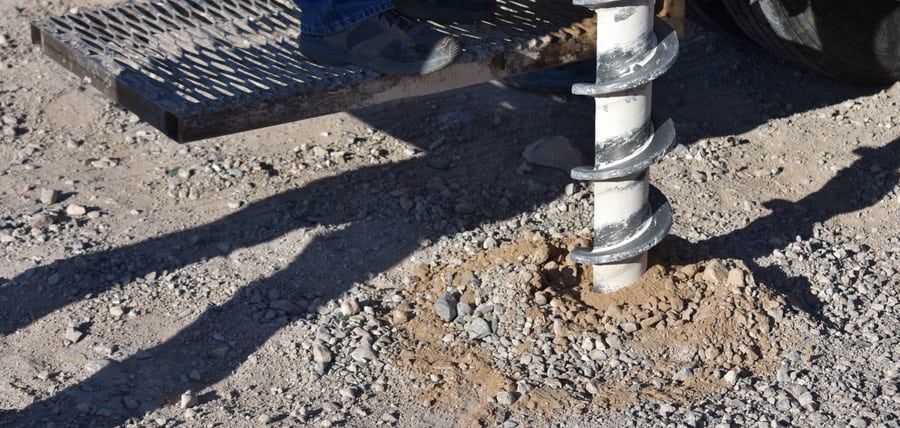
Why Test Soil Before Construction?
Think of soil testing as a health checkup for your land. Just as a doctor examines your body before prescribing medicine, engineers need to examine your soil before designing your building.
Every piece of land has its own “personality” – some soils are strong and stable like a rock, while others are unpredictable and change with seasons like our moods.
The soil beneath your plot has been forming for thousands of years through complex natural processes, and its characteristics directly determine how your building will behave over decades.
Without proper testing, you’re essentially building on an unknown foundation – a risk no sensible builder should take.
When you build something, the entire weight sits on the soil below. If this soil is weak, your building might:
- Develop cracks in walls (दरारें)
- Sink on one side (धंसना)
- Face foundation failure (नींव का कमज़ोर होना)
Lucknow’s soil changes from area to area. Some neighborhoods have firm soil, while others have soft or expanding clay. Only proper testing can reveal what’s beneath your plot.
Lucknow’s Soil Types
Lucknow sits in the Gangetic plain, with several soil types across the city:
- Alluvial soil (दोमट मिट्टी) – Found near rivers like Gomti, good for construction, but the flood risk needs checking
- Clay soil (चिकनी मिट्टी) – Expands when wet, shrinks when dry, needs special foundation design
- Sandy soil (बलुई मिट्टी) – Drains well but may not hold weight effectively
- Black cotton soil (काली मिट्टी) – Very problematic as it swells with water
Each type needs different construction approaches. For example, buildings on clay soil often need deeper foundations.
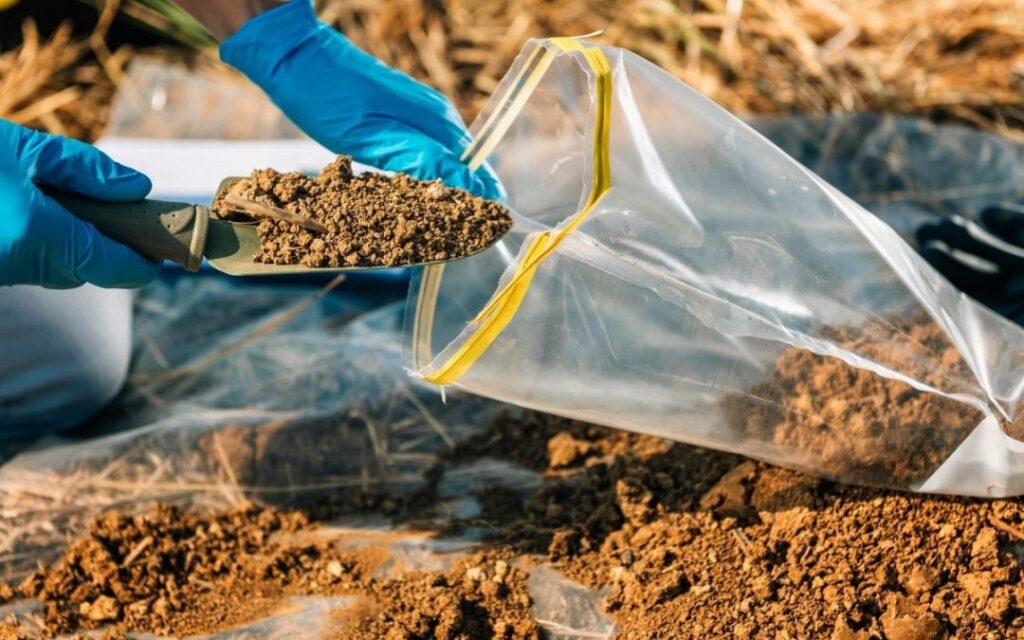
When Should You Test?
Always test the soil:
- Before buying land (ज़मीन खरीदने से पहले)
- Before designing your building
- Before starting construction
- If noticing any unexpected ground movement
- Before any major renovation that adds weight
Testing costs money now but saves much more later by preventing problems.
The Complete Soil Testing Process
1. Site Visit and Visual Inspection
First, engineers visit your plot to check:
- Nearby buildings and their condition
- Water sources like drains or rivers
- Any visible ground issues
- Previous land use (was it a pond or dump before?)
2. Sample Collection
Technicians collect soil samples using these methods:
Trial Pits (खाई खोदना):
- Simple holes dug 1-3 meters deep
- Good for examining visible soil layers
- Inexpensive but limited depth
Bore Holes (बोरिंग):
- Deep holes are made with drilling equipment
- Can reach 10-30 meters deep
- Samples collected at different depths
- Standard method for most Lucknow buildings
Standard Penetration Test (SPT):
- Measures how many hammer blows it takes to drive a tube into soil
- Higher numbers mean stronger soil
- Essential for multi-story buildings

3. Laboratory Testing
The collected samples go to a laboratory for these tests:
Moisture Content Test:
- Measures water in soil (मिट्टी में पानी की मात्रा)
- Important for foundation design
Grain Size Analysis:
- Determines percentages of sand, silt, and clay
- Helps classify soil type
Atterberg Limits Test:
- Shows how soil behaves when wet
- Critical for clay soils common in some Lucknow areas
Specific Gravity Test:
- Measures soil density compared to water
- Helps calculate settlement potential
Compaction Test (Proctor Test):
- Finds the best moisture level for maximum soil strength
- Essential for proper site preparation
California Bearing Ratio (CBR):
- Measures soil strength for roads and pavements
- Important for driveways and approach roads
Chemical Tests:
- Checks for harmful substances like sulfates
- Important near industrial areas of Lucknow
4. Report Preparation
After testing, you receive a soil investigation report including:
- Soil profile with layers and descriptions
- Safe bearing capacity (कितना भार उठा सकती है)
- Foundation recommendations
- Potential problems and solutions
- Groundwater level (ज़मीन के अंदर पानी की सतह)
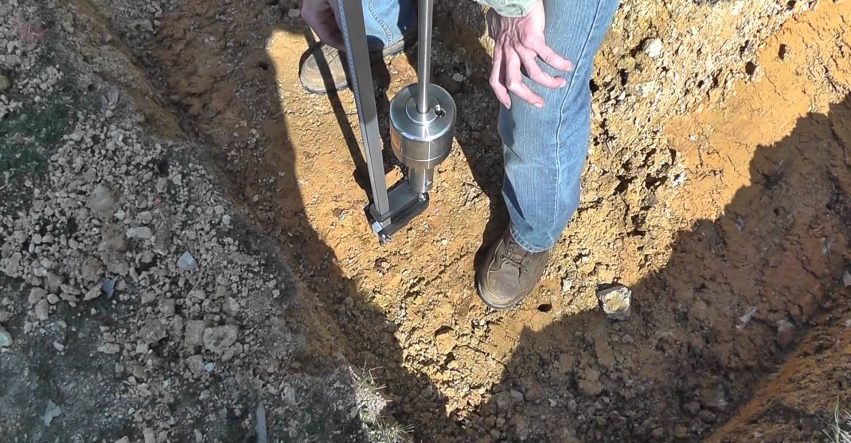
Cost of Soil Testing in Lucknow
Soil testing costs depend on:
- Plot size
- Required testing depth
- Number of samples
- Types of tests needed
For a typical residential plot in Lucknow:
- Basic testing: ₹15,000-30,000
- Comprehensive testing for larger buildings: ₹40,000-80,000
- Rush services may cost extra
Remember, this cost is a tiny fraction of your total construction budget but prevents costly problems.
Finding Reliable Testing Services in Lucknow
For trustworthy soil testing in Lucknow, consider:
- Established engineering firms
- Laboratories affiliated with engineering colleges
- Government-approved testing centers
- Companies recommended by experienced architects
Always verify their credentials and ask to see sample reports before hiring.
Understanding Your Soil Test Report
Your report may contain technical terms. Here’s what they mean:
- Bearing Capacity (धरनी क्षमता): How much weight per square meter the soil can safely hold
- Soil Classification: Description of soil type (sandy, clayey, etc.)
- Plasticity Index: How much the soil changes with moisture
- Settlement Analysis: Prediction of how much your building might sink
- Groundwater Table: Depth where water is found below ground
Ask your engineer to explain anything you don’t understand.
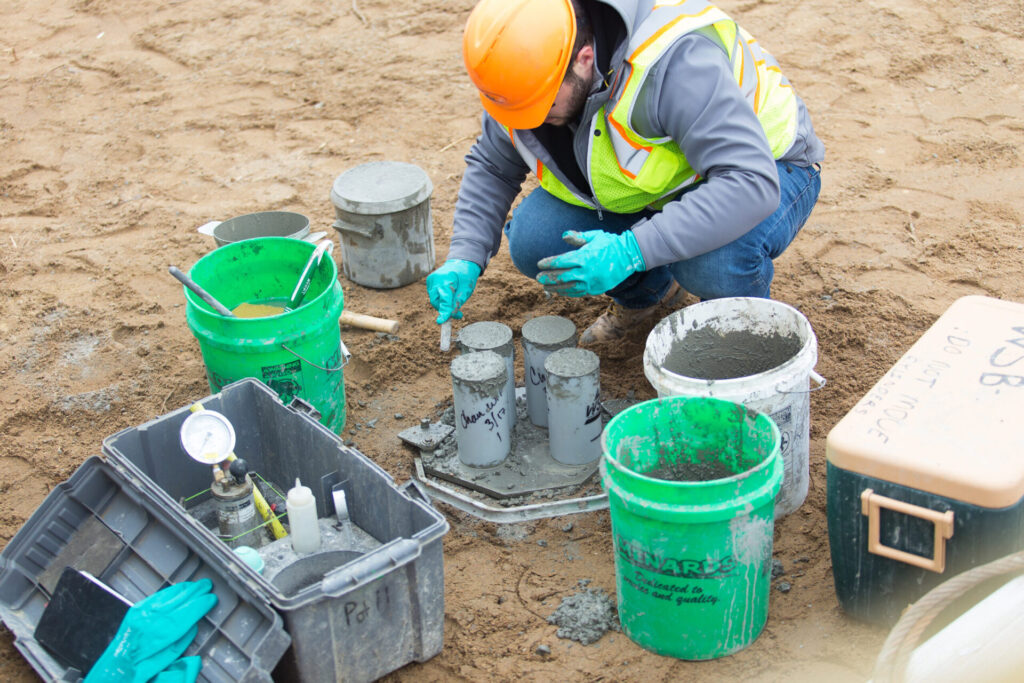
Using Soil Test Results for Construction
Based on test results, your engineer will recommend:
Foundation Type:
- Shallow foundations (उथी नींव) for good soil
- Deep foundations (गहरी नींव) for weak soil
- Pile foundations (खंभा नींव) for very poor soil
Excavation Depth:
- How deep to dig before starting your foundation
Soil Improvement Needs:
- If your soil needs strengthening with gravel, lime, or other materials
Drainage Requirements:
- Special systems to manage water around your building
Common Soil Problems in Lucknow and Solutions
Problem 1: Expansive Clay
- Found in: Gomti Nagar, parts of Indira Nagar
- Solution: Deep foundations, proper drainage, soil stabilization
Problem 2: High Water Table
- Found in: Areas near Gomti River, Hussainabad
- Solution: Waterproofing, dewatering systems, elevated foundations
Problem 3: Filled Land
- Found in: Newer developing areas where natural depressions were filled
- Solution: Soil compaction, deeper foundations, sometimes pile foundations
Problem 4: Organic Content
- Found in: Former agricultural lands
- Solution: Removing the organic layer, soil replacement
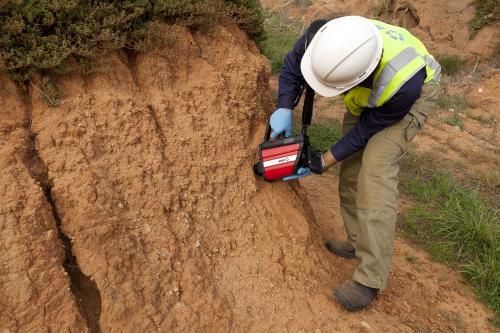
Seasonal Considerations
Lucknow’s weather affects soil conditions:
- Monsoon (बरसात): Soil is wettest and weakest
- Summer (गर्मी): Soil may be extremely dry and cracked
- Winter (सर्दी): Most stable for testing
Ideally, test in different seasons if possible, or account for seasonal changes in your design.
Legal Requirements
In Lucknow, soil testing is:
- Mandatory for buildings over three stories
- Required for obtaining building permits from the Lucknow Development Authority (LDA)
- Necessary for bank loans for construction
- Required by many insurance companies
Keep your soil test report safe, as it may be needed for future reference.
Frequently Asked Questions
How long does soil testing for construction in Lucknow take?
Typically, 7-14 days from sample collection to final report. Rush services may be completed in 3-5 days at a higher cost.
Can I build without soil testing?
Legally, small single-story houses might not require formal testing, but it’s still highly recommended. For larger structures, it’s mandatory and skipping it can void insurance and violate building codes.
My neighbor built without issues. Can I skip testing?
No. Soil can change dramatically even within short distances. Your plot might have completely different conditions from your neighbor’s.
When is the best time to conduct soil tests in Lucknow?
Post-monsoon (after September) gives you the most conservative results as the soil has been through its weakest condition.
How deep should soil testing go?
For residential buildings (2-3 floors), typically 3-6 meters. For larger buildings, 10-20 meters or more.
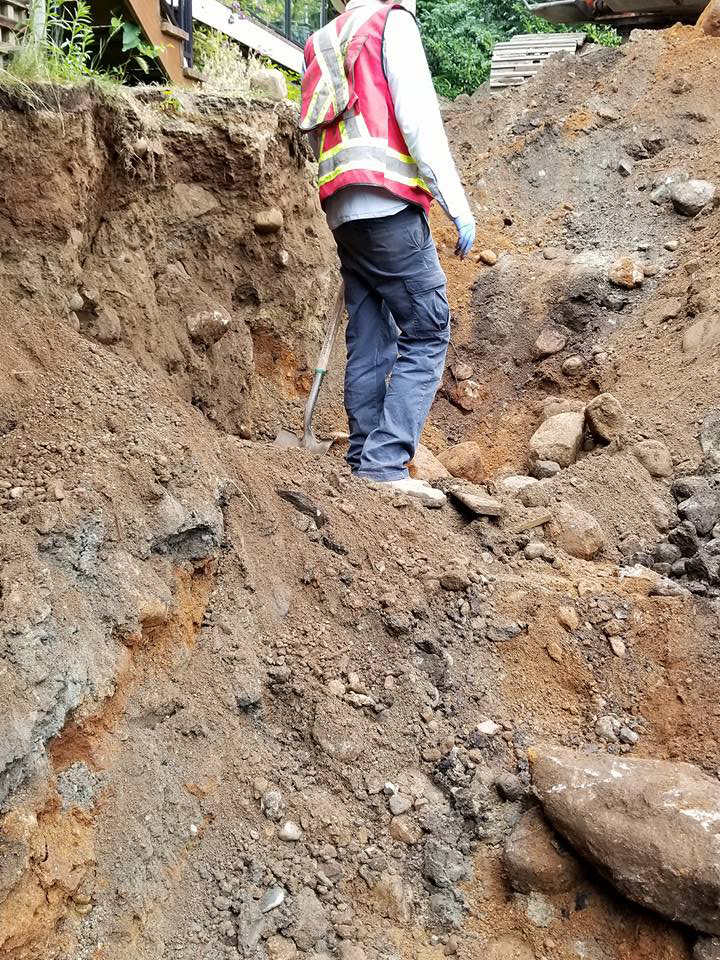
Will soil testing damage my plot?
No. The small holes created are easily filled afterward, and the process causes minimal disruption.
My soil test shows poor soil. Does this mean I can’t build?
No, it just means you need an appropriate foundation design. Nearly any site can be built upon with proper engineering solutions.
How often should soil testing be repeated?
Usually once before construction is sufficient. However, if construction is delayed more than 5 years or major changes occur nearby (like excavation or river course changes), retesting may be advisable.
Are soil tests from 10 years ago still valid?
Generally no. Groundwater levels and soil conditions can change significantly over time, especially in developing areas of Lucknow.
Does the Lucknow Development Authority (LDA) recommend specific testing agencies?
The LDA doesn’t officially endorse specific agencies but requires testing from recognized laboratories. Ask for their accreditation details.
Conclusion
Proper soil testing is not just a regulatory requirement but a crucial investment in your building’s future. In Lucknow’s varied soil conditions, this step should never be skipped. The small upfront cost of testing prevents potentially massive repair expenses later.
Remember the old saying: “A house is only as strong as the ground it stands on” (“मकान उतना ही मज़बूत है जितनी उसकी नींव”) – this wisdom holds particularly true in Lucknow’s diverse soil landscape.
